Text: Karim Md Fazlul,Faisal Shehzad
Host: Karim Md Fazlul
Photo: 朱见勇(Nova vibe),李茹 (May)
Video: 周炜轩(Wesley Zhou)
Organized by: Karim Md Fazlul and 王凯 (Karl)
>>> About the Speaker:
Dr. Zhang Xiaotong is professor of the School of Political Science and Public Administration, Wuhan University and Assistant dean (vice-president) of Wuhan University Institute for international Studies. He is also a member of Advisory Committee for Economic and Trade Policy. He used to work at the U.S. Desk of Chinese Ministry of Commerce, and serve as Trade Attaché at the Chinese Mission to the European Union in Brussels from 2004 to 2010. He has recently published Brussels Diary, a biography about his working experiences as a trade diplomat, and China’s Economic Diplomacy in the 21st Century, an edited volume on China’s economic diplomacy in the first ten years of the 21st century. Dr. Zhang also served as visiting scholar at SAIS (School of Advanced International Studies), Johns Hopkins University in 2014-2015. His major research interests include trade policy, economic diplomacy, European studies, geopolitics, and US-China relationship.
>>>About this English Geoscience Café session:
Session: No. 7
Venue:Conference Hall on 2nd Floor in LIESMARS, Information Sciences Campus of Wuhan University.
Time: 7pm- 9pm
Topic: The Geopolitical Risks on Traveling Abroad by Chinese High-speed Railways
In English GeoScience Café (EGSC) no.7, a lot of students from different Schools of Wuhan University as well as other universities participated. The new audience for GeoScience Café were the Summer School students from 17 different countries enjoyed the lecture from Professor Zhang Xiaotong on The Political Risks on Traveling Abroad by Chinese High-Speed Railways. At the beginning of the session, Ms. Chinese name (May) (Masters student of LIESMARS) introduced the past activities and future goal of EGCS, followed by the host Karim Md Fazlul who gave a quick prologue of the session and introduced the speaker to the audience and requested to the speaker to began his presentation.
Professor Zhang began his talk in a very lively and pleasant mood. His presentation comprised of two parts. In the first part he focused on the concept of geopolitical risk considering past and present history and in the second he focused specifically on the geopolitical risk on traveling abroad by Chinese high-speed railways. He also highlighted China`s co-operation with the other countries for the development of modern railways.
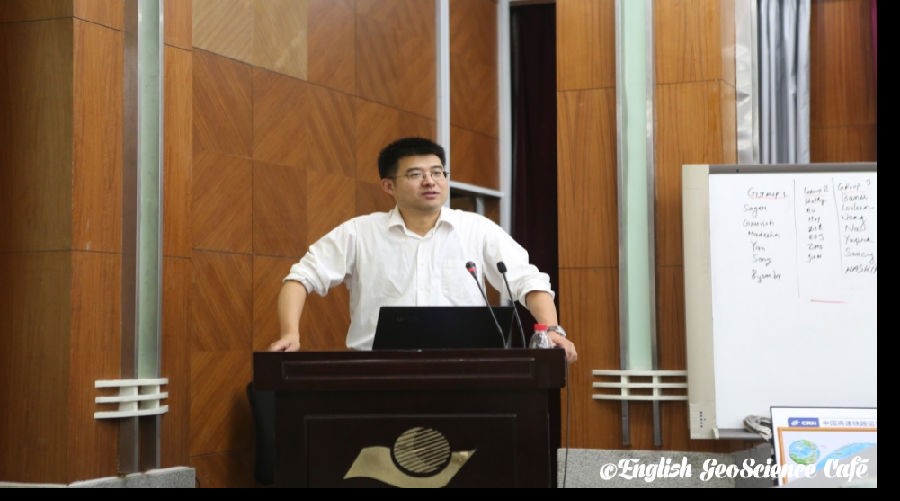
Figure -1: Professor Zhang Xiaotong
At the beginning professor Zhang talk about the concept of geopolitics. According to professor Zhang, “Geopolitics is a politics of geography”. He highlighted that, Geopolitics is a method of studying foreign policy to understand, explain and predict international political behavior through geographical entities. “Geopolitics is defined as “the struggle over the control of geographical entities with an international and global dimension, and the use of such geographical entities for political advantage” (Flint 2017: 16). He correlated the politics and geography and said, “when you think about geopolitics you have to think about international politics something to do with geography”.
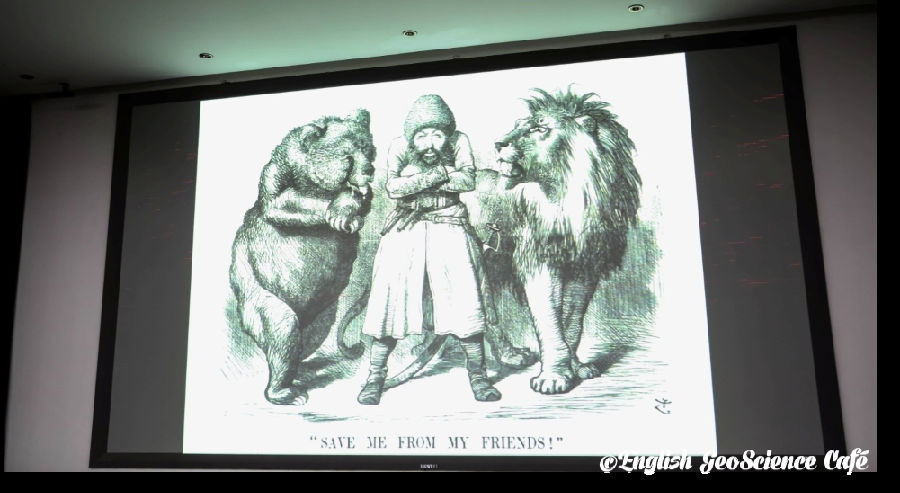
Figure-2: The struggle over the control of geographical entities
“A picture is worth a thousand words” figure-2 in Professor Zhang Xiaotong’s presentation is evidence of the same fact. It tells us the whole story of Afghan, British and Russian relationship for a specific erra. During 1800’s when Indian Subcontinent was the colony of British empire and British empire wanted to ensure that this part of world remain their colony. At a moment British empire realized that Russia is the number potential enemy who probably cut off the transportation route between Indian subcontinent and British empire on the point of Afganistan. For this reason Afganistan got attention from both British and Russia. British empire wanted to turn Afganistan into their protectorate.
Professor reflected upon the geopolitical theory. According to him sea route is most important one to establish your supremacy. He mentioned that power on the sea route is the most efficient way to ensure your authority. A number of example can be coded in this regard, like the Russian invasion to Afghanistan was also an attempt to get access to warm waters of Indian ocean. In the context of USA to become an emerge water power they need to ensure their power remain on Mexico, central America, Caribbean and south America regions sea area.
Then professor talked about power. He said power is a relational concept. For example professor mentioned that, “I as a professor have power over my students. So power is a relational concept between a relationship”. He mentioned that power is not a one dimensional phenomena rather its two dimensional. It is an interactive process. For example, in a relationship between a boy and a girl. If the boy loves the girl more than the girl, so we can say that girl have a power on the boy because sentimentally this boy is dependent upon this girl. So when it comes to international politics among the nations, power matters. Professor insisted on that, power is probably one of the most important and most fundamental purposes of a nations existence.
Professor mentioned that, of course the national state not only seeks power, it also seeks wealth. It also intends to make money, grow economically and develop infrastructurally. But there is a doubt, some students of international relationship argue that the fundamental purpose of nation is only one power and rest of the students of international relationship especially international political economy students says that purpose of nation have two folds both power and wealth.
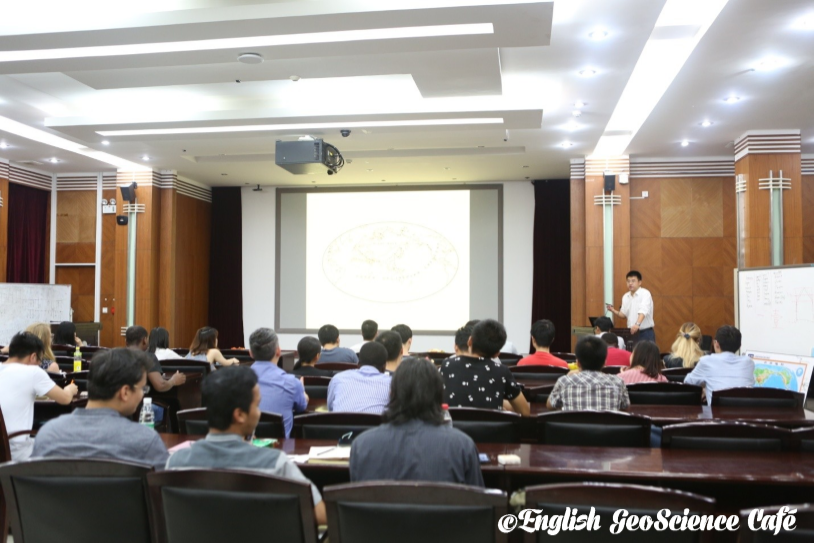
Figure-3: Professor Zhang explaining in and out of Heartland Theory by Sir Halford Mackinder
The famous geopolitical theory Sir Halford Mackinders well-known as Heartland theory was also the part of discussion. Mackinder's notion of geopolitics was summed up when he said, “Who rules Central and Eastern Europe commands the Heartland. Who rules the Heartland commands the World-Island. Who rules the World-Island commands the World”. Professor then mentioned that, Nicholas J. Spykman is follower as well as critic of Halford Mackinder. Spykman adopts Mackinder's divisions of the world and renaming them as The Heartland, The Rimland and The Offshore Island and Continents.
After explaining in and out of Geopolitical concept professor turned his talk to the geopolitical risks of railways. Professor Zhang mentioned that, China is the rising force at the moment in the world both economically and politically. In the year 2008 the global financial crisis broke out and the State Council soon took out 400 million yuan to stimulate economic growth. China high-speed railway is one of the benefited domain. Within 60 years, China has built the world`s largest high-speed railway network and now China is trying to build high-speed railways around the world, reducing travel time and increasing connectivity. Then he highlighted the famous Barlin- Bagdadh railways and explained why Berlin- Baghdadh railway route was so important for British empire. Professor mentioned that, the Berlin-Baghdad Railway was built from 1903 to 1940 to connect Berlin with the Ottoma Empire city of Baghdad, from where the Germans wanted to establish a port in the Persian Gulf with a 1,600 kilometers line through modern-day Turkey, Syria, and Iraq. Professor insisted that Berlin-Baghdad road had a huge role in world war I and consequently to the whole world.
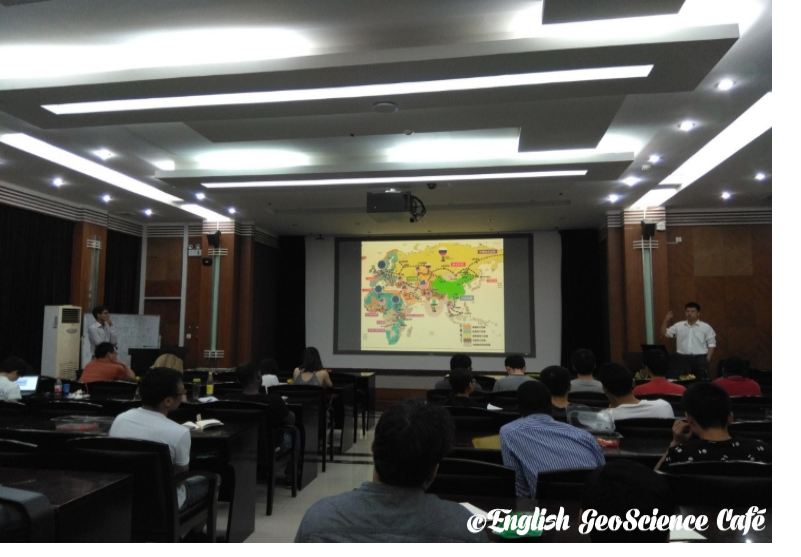
Figure-4: Professor showing the major railway routes of the world
After then professor talked about some important modern days’ railway routes which are important both economically and politically for the whole world. Professor specially mentioned about China-Russia railway route and trans-asia railway route.
China is now the rising power of the world both economically and politically. Professor mentioned that, China has now started to lend money for improving railway network of developing and underdeveloped country and even some of the developed country. For example, the launch of China-Kenya railway treaty is the new helping aid project of china that will help Kenya to start a new era of their railway network. Professor mentioned that in future this road will continue to build and further connect to Uganda, Burundi and South Sudan with Kenya.
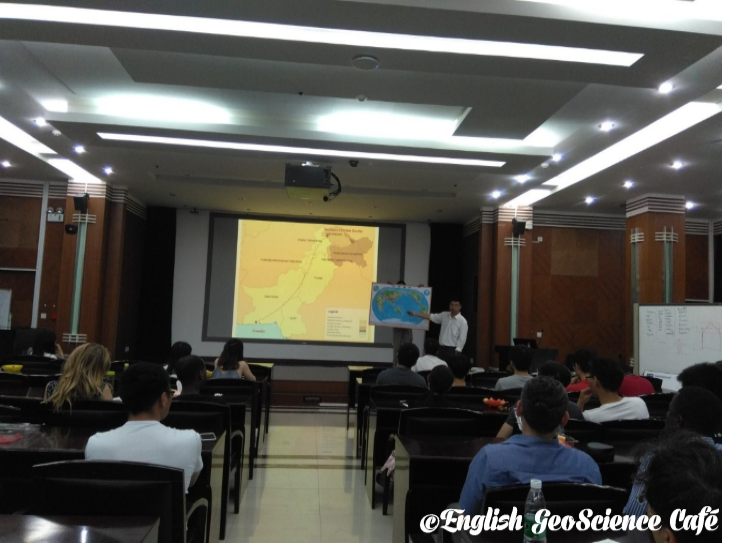
Figure- 5: Professor explaining the importance of China-Pakistan economic corridor
After that professor talked about another important railway route both for China and Pakistan well-known as Taxila–Khunjerab Railway Line. In 2007, consultants were engaged to investigate the construction of a railway through the Khunjerab Pass in Gilgit-Baltistan to connect China Railway with Pakistan Railways. In June 2014, China commissioned a "preliminary research study" to build an international rail link to Pakistan. The 682k km proposed railway link would be part of the China–Pakistan Economic Corridor, China's involvement in several rail projects in Pakistan is motivated primarily by commercial considerations, but it also sees distinct advantages for its improved transportation and access to Central Asia and the Persian Gulf states
Professor Zhang kept the audience attracted with his wonderful talk and many interesting gestures during his lecture and bring smile on the faces of the audience by sharing his experiences. At a moment, professor mentioned that, china`s one belt one road concept still follow the Classical geopolitical theories.
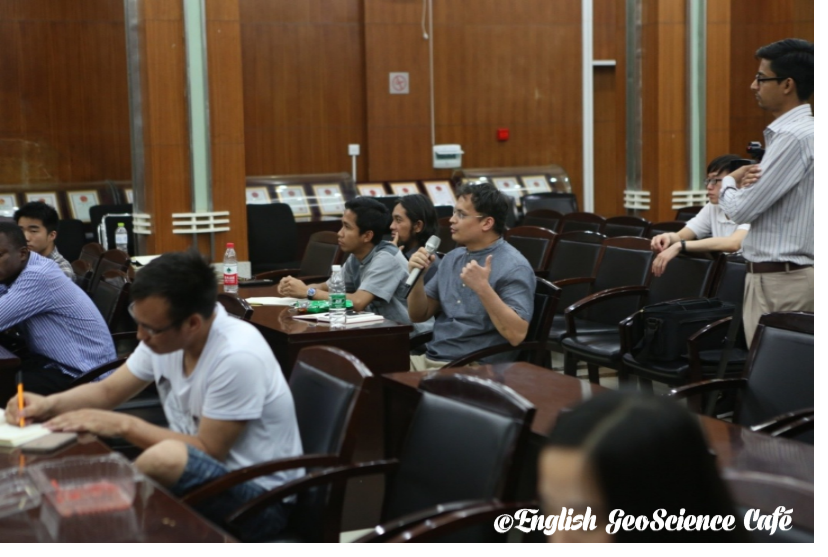
Figure-6: Question and Answer session
In the end, the seventh session of the English GeoScience Café was a great success with a huge turnout of audience and a detailed, historical presentation from Professor Zhang Xiaotong.
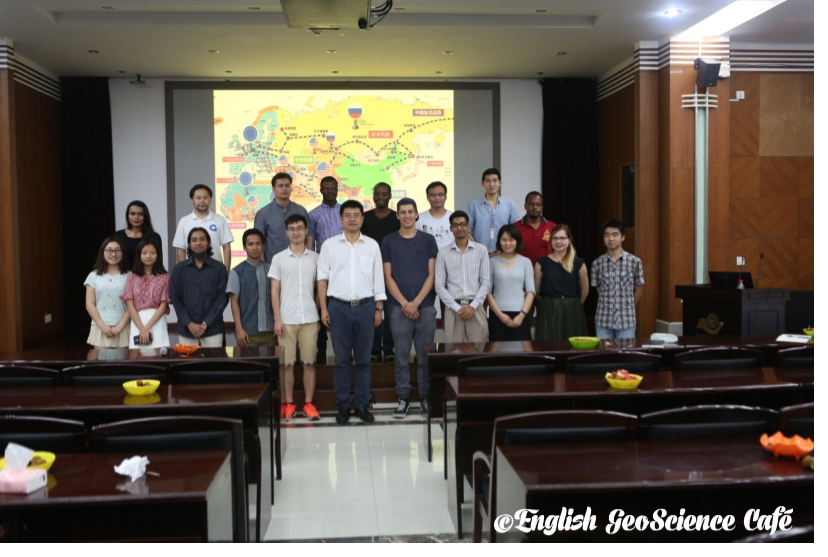
Figure-7: Professor Zhang Xiaotong with part of the audience after the session
Scan the QR code below and join us!

